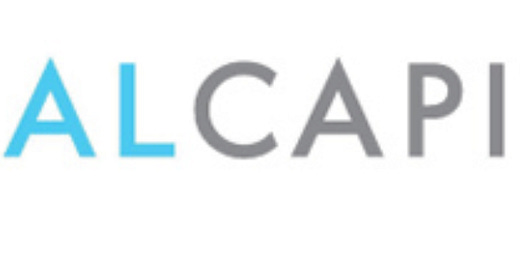Building for the Long Run
Social Capital tells it how it is, a new Birmingham seed round and running down a dream

The Macro
Quick background on today’s newsletter: it is entirely focused on an annual letter written by investor Chamath Palihapitiya.
Chamath is a former vice president at AOL, partner at the Mayfield Fund, and was vice president of user growth at Facebook which he joined in 2007.
In 2011, he launched Social Capital, which was a venture capital firm focused on making investments in education, healthcare, and fintech. At the time, these categories were not drawing a lot of attention from other venture firms. In 2018, he surprised many in the tech world by no longer accepting outside capital to make investments. He shifted the firm's focus away from venture capital and pivoted to a technology holding company (think Berkshire Hathaway), allowing them to strictly invest using the cash off their own balance sheet.
In the same year he pivoted away from the traditional venture model, Chamath began writing his annual letter. Chamath doesn’t beat around the bush; he’s a no-bullshit kind of guy and the type of investor that could smell bullshit on someone like Adam Neumann or Elizabeth Holmes from a mile away.
I’ve linked the annual letter but if you don’t have time to read the entire document, here are, in my opinion, some of the most important takeaways.
Key Takeaways
We live in a modern Gilded Age a.k.a the Fourth Industrial Revolution. For the past ten years or so, the rise of Big Tech has granted us economic prosperity and technological innovation. However, Chamath points out that “the last few years seem very much akin to the beginning of the end of our modern Gilded Age and the beginning of a new Progressive Era”. In this new progressive era, we should expect to see more social activism surrounding BigTech and the rise of regulations and taxation on Amazon, Google, Facebook, Microsoft, and Apple.
Our smartest people are building the simplest of products at the likes of Amazon, Google, Facebook, etc. In other words, they’re getting paid a lot of money to build features that have little to no innovative impact. Granted, this is better than 15 years ago when they were building financial products of mass destruction.
“After the GFC, STEM grads fled Wall Street in droves but the lobotomization didn’t stop because Big Tech took over the starring role. Carbon sequestration? Resource scarcity? Materials Science? No thanks. Photo-tagging, short-form video uploading and ad targeting were the work du jour”.
There is a clear difference between technology companies and tech-enabled companies: the amount of cash that is necessary to fuel the growth of the business.
“Big Tech raised a total of $1.345B in venture capital before going public of which $1.3B was Facebook alone. This means that Apple, Amazon, Microsoft, and Google raised less than $45M combined before IPO. Even on an inflation-adjusted basis, this is incredible and tells something very important about a raft of today’s startups. They are not technology companies. They are tech-enabled hybrids. Tech companies don’t need to raise a lot of money.”
Life and innovation move at the speed of light and are only going to continue to move faster as time goes on.
I’ll end with my favorite quote from the entire letter:
“When you are at your best, you can give your best in any situation and to those around you. Keep that in mind as you build for the long run”
Build for the long run and you, your company, and everything else will be okay.
The Micro

There is more exciting fundraising news this week in Birmingham as Alabama Future’s Fund (AFF) portfolio company Case Status raised their second seed round led by BIP Capital out of Atlanta. This $1.5 million round follows the $725,000 they raised from AFF back in 2019.
Founded in 2017 by lawyer Lauren Sturdivant, Case Status is a Techstars Atlanta alum that provides a client relationship management and marketing platform for law firms.
Takeaway
Law is one of the professional services that has been slow to adopt new technology, as the practice is regulated by state bar associations and has an older workforce — the average age of a lawyer in the United States is nearly 50 years old.
Case Status provides a cloud-based platform that gives attorneys the ability to update the status of their clients’ cases with a click of a button. This allows lawyers to focus more time on cases and spend less time managing their clients. It’s a win-win for both clients and attorneys.
Case Status has been a bright spot in legal tech recently, especially after the failure of Justin Kan’s legal tech platform, Atrium. Atrium raised over $75 million before closing its doors for good last week and laying off nearly 100 employees. As Chamath mentioned in his annual letter, pure technology companies don’t have to raise a lot of money — tech-enabled companies do. Where Atrium was capital inefficient for being tech-enabled, Case Status is more capital efficient because it is a pure technology company.
I’m excited to see all that Case Status accomplishes. They’re going to be a huge win for Birmingham as a member of our tech ecosystem and for lawyers everywhere. Case Status is building for the long run and we are fortunate to have them call Birmingham home.
What to Read (And Watch)
Why the market downturn this week is nothing like the ‘07-’08 Great Recession. Written by former PIMCO CEO and current Chief Economist Advisor of Allianz, Mohammed El-Erian.
For those seeking motivation especially during these tough few weeks, I love this video of Benchmark partner Bill Gurley giving a talk on what it takes to achieve one’s dream.
Happy Learning,
Sean



